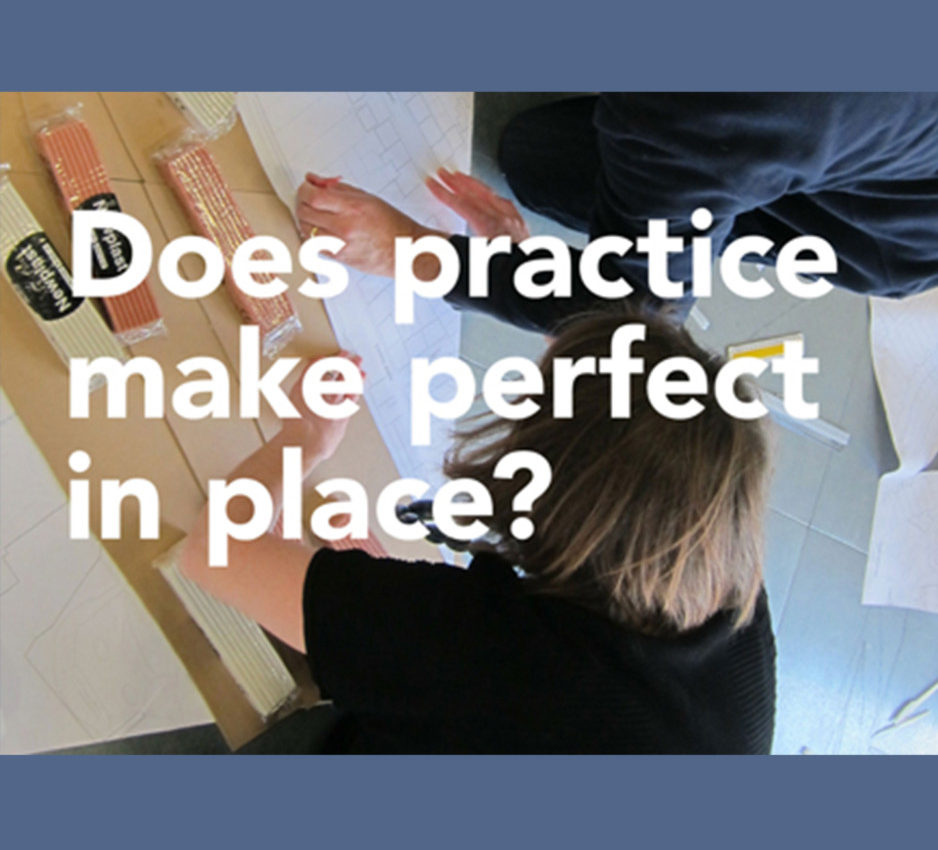Written by:
“Places are what happen when you’re busy doing other things,” Pauline Gallacher told us at our Debate in Glasgow titled Does practice make perfect in place?. Pauline, recently confirmed as Convener of the Scottish Community Alliance and previously of the Neilston Development Trust, talked of the collision of ritual and conviviality in place – the feeling was that that the creative chaos of placemaking necessarily needs trial and error, “of course practice makes perfect, but there’s no point if there are no opportunities to practice” chimed Head of Mackintosh School of Architecture, Chris Platt. And our vocal audience agreed.
Etive Currie, Senior Planner at Glasgow City Council, told us that people need permission to fail, if we are to create opportunities for dialogue and progress. But we don’t give them that opportunity. Why? We were reminded that communities are often coming to placemaking on the back foot – responding to opportunities and threats and not necessarily working in a structured way. Then they fall foul of our bureaucracy.
Our speakers and audience (including many public sector professionals) reached the consensus that the public sector does not value dialogue and collaboration, and that even when they have the input from communities to inform activities, it isn’t always used. Risk aversion and the fact that we often reward it, was seen as stifling creativity and preventing us nurturing the talent coming through. “We don’t provide our young practitioners with opportunities,” Chris Platt told us, “we have a whole generation of talent with limited opportunities because of the policies we have in place”. And when the journey to create something in the built environment is so long and hard, Chris went on, our procurement methods disable us.
On the effects of policy on individuals and communities, we heard that they “have allowed people to become passive recipients, rather than active agents” in their society, again, they disable.
How could we change things? Pauline was firm: “We [communities] have proven we can do it – that we can move mountains, now we need to move to the next level – ‘modest institutionalisation’”. There was a call for us make the case better for participation and a different way of doing things. “We need more scientific evidence” said one voice in the room.
Chris lauded the ‘heroes’ we have in communities who can speak the different languages necessary to make things happen in different places (community, local government, private sector…). But those polyglots can’t exist in evenings and weekend only – we need to stop being “complicit in the lie” that it can be done for free. “It should not be charity”, concluded Chris, with much support in the room from those with experience of community-led initiatives. There seemed to be a distinction emerging between what’s always been termed ‘capacity’, which many in the room felt is already there, and the way our processes enable funds to be directed to enable that capacity to realise itself.
How can we make this happen? There was consensus that if the political will existed, money would be directed to allow the necessary structures and scale to develop. We must “shake the tree of local government” declared Pauline, suggesting we need to unlock and unleash the layers of power that will enable progress and achievement.
But the culture change required is “massive” emphasised Etive and “a slow process”. There was plenty in the Glasgow Debate that challenged the status quo and that we can move forward as this Debate Series progresses. Chris left us with a clear parting call to action: “If we care enough, we will just do it.”
Our Debate Series To a More Ambitious Place continues in Sheffield next month, with the question Do the right people have power in place? Join the discussion in person or online.
